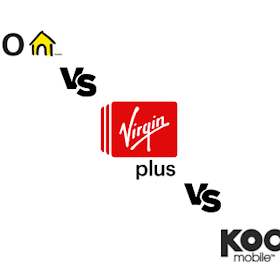
It may be one of the most advanced and technologically progressive countries in the world, but it would seem that even the United States isn't immune to the digital divide.
A new survey released by the Pew Internet Project shows that 20% of American adults have zero home Internet access at all - meaning one in five adults go without email, Google, or social media.
There are obvious disadvantages to not having easy access to online services. Americans without reliable broadband access will find it harder to do things such as look for job opportunities, learn career skills and continue their education, get accurate health information, access government services and keep up-to-date with current events.
Not to mention that so many of us can’t remember how we ever survived without easy access to Google or Wikipedia to help us cheat at trivia nights, write last-minute school assignments and stalk friends-of-friends through their online profiles.
Aside from the important educational and social aspects of Internet access, the world wide web is also an endless source of entertainment, weirdness and culture. To the 20% of Americans living without broadband or smartphones, here are some of the things you’ve been missing out on:
- Cats. Lots of cats.
- This epic Three Wolf T-shirt.
- Emails from Nigerian royalty urgently requiring your assistance.
- Being played off by this viral virtuoso.
- Autotuned everything (see Antoine Dodson, Sweet Brown and the Double Rainbow guy).
- The magic of Craigslist (especially Missed Connections and Casual Encounters).
- Being Rickrolled. Every. Single. Time.
- The spiralling rabbit hole of insanity that is online fan fiction.
- And yet more cats. This one is disappointed in your poor life choices.
What the survey found
30% of Americans don’t have a home broadband connection, with 10% of adults relying on their smartphones to access the Internet instead of a personal computer.
Of those that do have computer access, 3% are still using out-dated dial-up connections to go online.
Unsurprisingly, home access to broadband increases with demographic factors such as education level and income. Almost 90% of college graduates are connecting to broadband at home, compared to only 37% of Americans who didn’t complete high school.
Similarly, almost 90% of adults earning $75,000 or more annually have home broadband, but this figure drops to only 54% for those bringing in less than $30,000.
However, while the survey suggests an obvious correlation between wealth and education in terms of Internet access, it doesn’t elaborate as to whether lower-income adults without home broadband or smartphones were able to go online some other way, such as at work.
Age is also a huge factor. 80% of Americans under 30 have broadband access, and 78% of those between 30 and 50. But America's senior population is at a disadvantage, with only 43% of adults aged 65 and older having a home Internet connection.
Another disappointing statistic is that adults with a disability (some 27% of the adults surveyed) were significantly less likely to go online than adults without impaired abilities - only 54% of disabled Americans have broadband at home.
Why?
Although it's easy to blame financial inequality as the reason so many adults are forgoing the Internets, a simple lack of confidence and awareness may be the bigger issue.
And as 98% of the US population live in areas that receive broadband coverage, a lack of access due to geographical isolation isn't a huge factor in explaining the lack of take-up of broadband by many Americans.
Of survey respondents who didn’t have home Internet access, over half stated the main reason for going without a broadband connection is that they don’t feel the Internet is ‘relevant’ to them.
Most have never used it before, and only one in ten Americans without Internet access expressed an interest in using it in the future - meaning close to 20% of adults are voluntarily being left behind.
Photo credit: Keo Saulog at Flickr
Related Articles
Find Better Phones and Plans
Hundreds of cell phone plans unpacked. All the facts. No surprises.







































